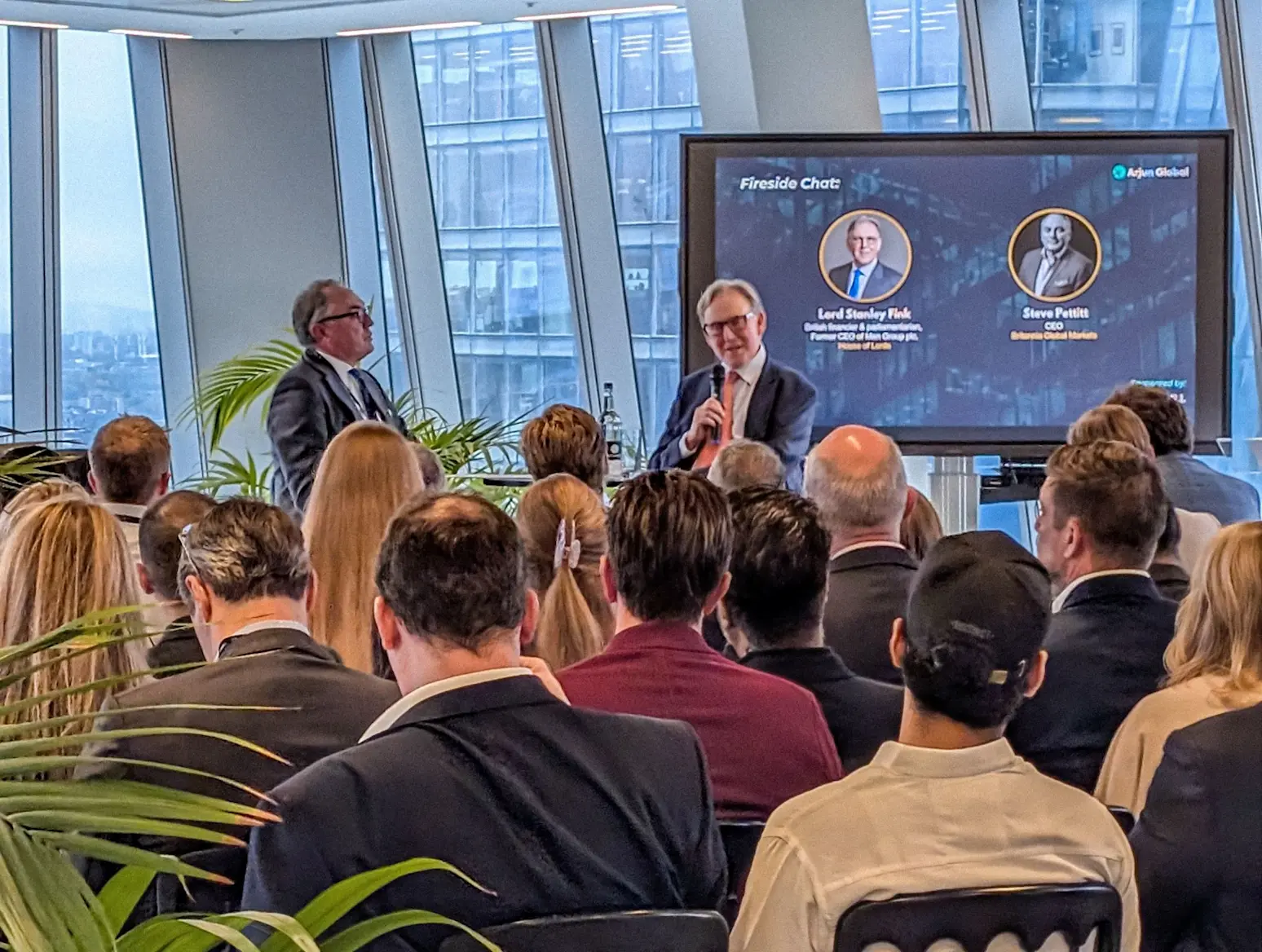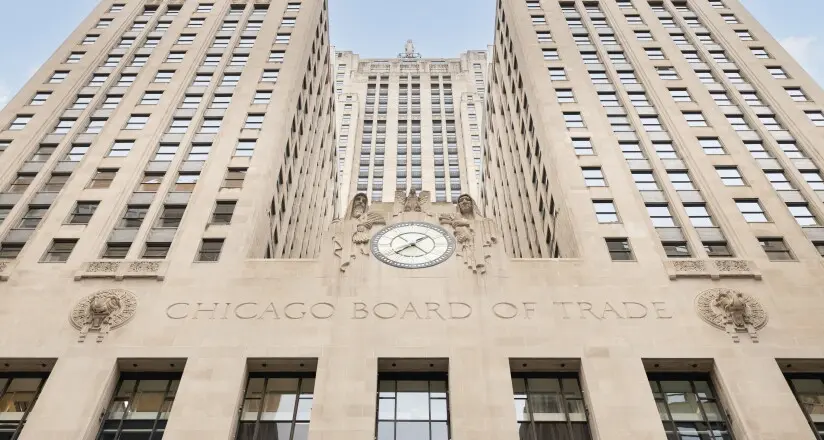Lord Stanley Fink discusses implied pricing in volatile markets
16th October, 2025|Luke Jeffs

Lord Stanley Fink, the former head of Man Group, has argued investors should use implied rather than historical pricing models in extreme market conditions like those seen in recent months.
Speaking at an event hosted by Britannia Global Markets and Arjun Global, Lord Fink, who ran the British hedge fund for eight years before joining International Standard Asset Management (ISAM) in 2008, said investors need to be flexible in their use of pricing models.
Lord Fink said: “What we learned at Man and ISAM is that almost all commodity trading advisors use historical volatility which is much easier to price whereas if you go to implied you ramp up the transaction costs. But, when there is extreme volatility, there is a trigger point at which you have to switch from historical to implied.”
Lord Fink added: “To run the optimal model, all our research suggests you should operate historical most of the time but switch to implied when markets move out of alignment.”
His comments are timely given gold and silver have already hit records this week while copper hit an all-time record in late July before losing nearly a quarter of its value following a tweet by US President Donald Trump.
In conversation with Britannia Global Markets chief executive officer Steve Pettitt, Lord Fink went on to discuss the importance of commodity derivatives in a diversified investment portfolio.
He told the delegation: “The role of commodities is very interesting. At Man Group, we ran a trend-following system, that was arguably one of the first AI trading systems, looking at trends and how they would apply in the future.”
Lord Fink said Man traded on over 100 markets but many of these were correlated, adding: “When I went to ISAM, we tried to keep a good weighting particularly in agricultural commodities because all the other commodities, currencies and stock markets tend to move to the same signals so that is risk-on, risk-off, high inflation, low inflation etc, whereas agricultural commodities have some additional factors such as weather, crop disease or the price of fertiliser.”
Pettitt agreed with Lord Fink saying the spike and collapse of copper prices in late July was unprecedented so could not have been predicted using historical analysis.
The Britannia Global Markets chief executive told the conference: “If you look at the recent copper arb, there was a market that was trading 200 bucks either side of flat for almost a decade so there was a very reliable arbitrage. Then there was one Trump tweet about tariffs and that plus or minus 200 goes to 3000 and, once he clarified that tweet a couple of weeks later that metals such as copper would not fall under that tariff, it dropped from 3000 to flat in 18 minutes.
Pettitt concluded: “We are in a new era here where historic can sometimes be over-written for sure.”
Speaking after the event, Paul MacGregor, an executive director at Arjun Global, added: “We were proud and honoured to host our Commodities and Crypto forum with our partners Britannia Global Markets and TickMill. The quality of the speakers and debate were amongst the highest you will find during LME week and Digital Assets Week.”


